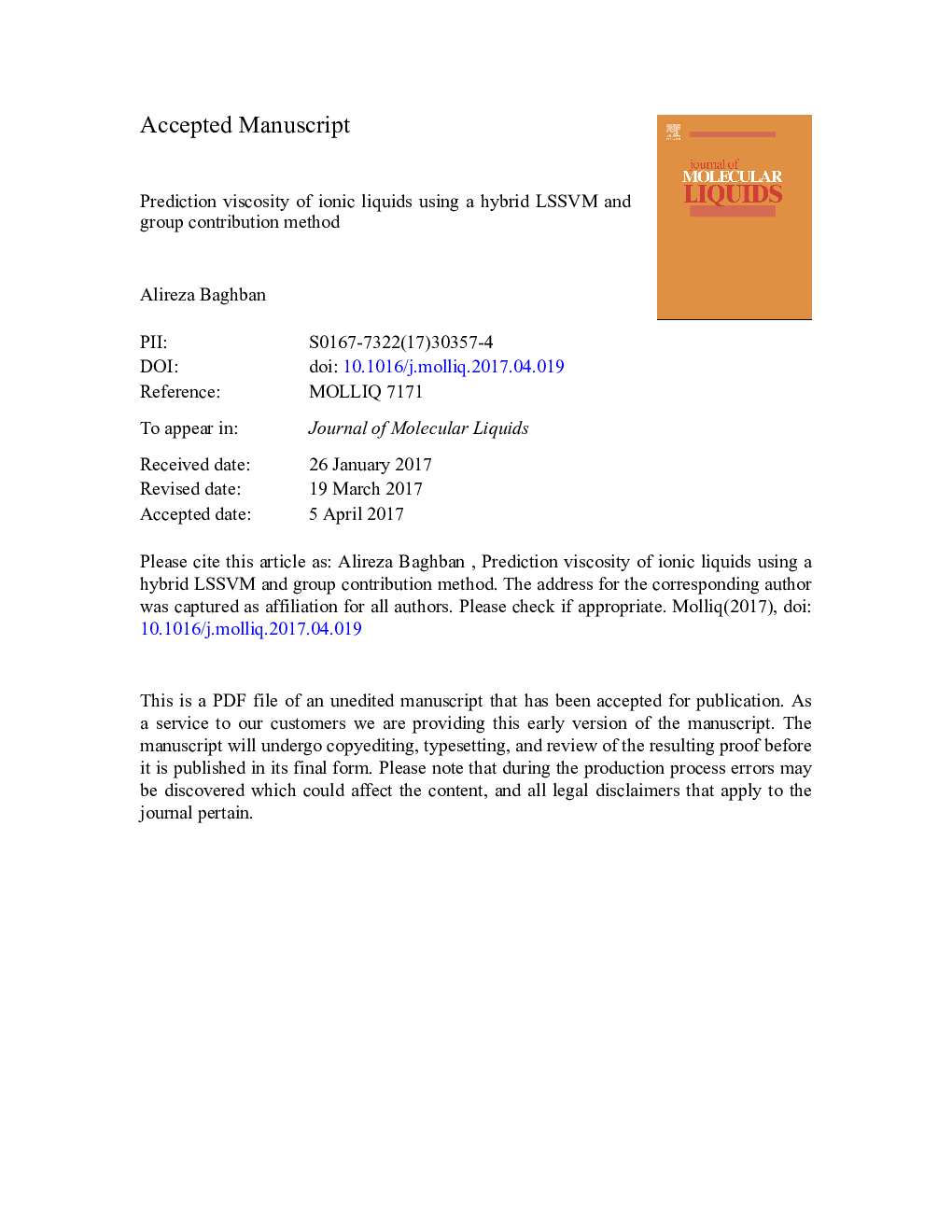| Article ID | Journal | Published Year | Pages | File Type |
|---|---|---|---|---|
| 5409108 | Journal of Molecular Liquids | 2017 | 35 Pages |
Abstract
Owning to remarkable characteristics of ionic liquids (ILs), they have attracted the attention of numerous scholars and broadly applied as promising and environmentally friendly chemical compounds. The viscosity of ILs is one of the most significant physical properties which affect the design of instruments such as a pump. Hence, looking for a precise model to estimate the viscosity of such liquids is certainly crucial. In this regard, a hybrid least square support vector machine (LSSVM) and group contribution method was developed as a superior novel predictive tool for estimating viscosity of 443 different ILs. The viscosity of ILs has been predicted as a function of the temperature and 46 sub-structures. Moreover, the suggested LSSVM model has been compared with another group contribution model developed by Gharagheizi et al. and the results obtained from the statistical analyses confirmed this fact that the approximations by the LSSVM model were to be in good agreement with the actual reported viscosities. Statistical analyses such as the Mean Squared Error (MSE) and R-Square (R2) obtained 0.007, 0.979 and 0.043, 0.874 for the LSSVM and Gharagheizi et al. model, respectively. In addition, both models were statistically compared to two correlations developed by Vogel and also Daubert and Danner. The efforts in this research definitely covered the way for great viscosity predictions of ILs, which can help chemist and engineers to have a simple predictive tool with low dependent parameters for monitoring the operational conditions and phase behavior of the systems.
Related Topics
Physical Sciences and Engineering
Chemistry
Physical and Theoretical Chemistry
Authors
Alireza Baghban, Mohammad Navid Kardani, Sajjad Habibzadeh,
